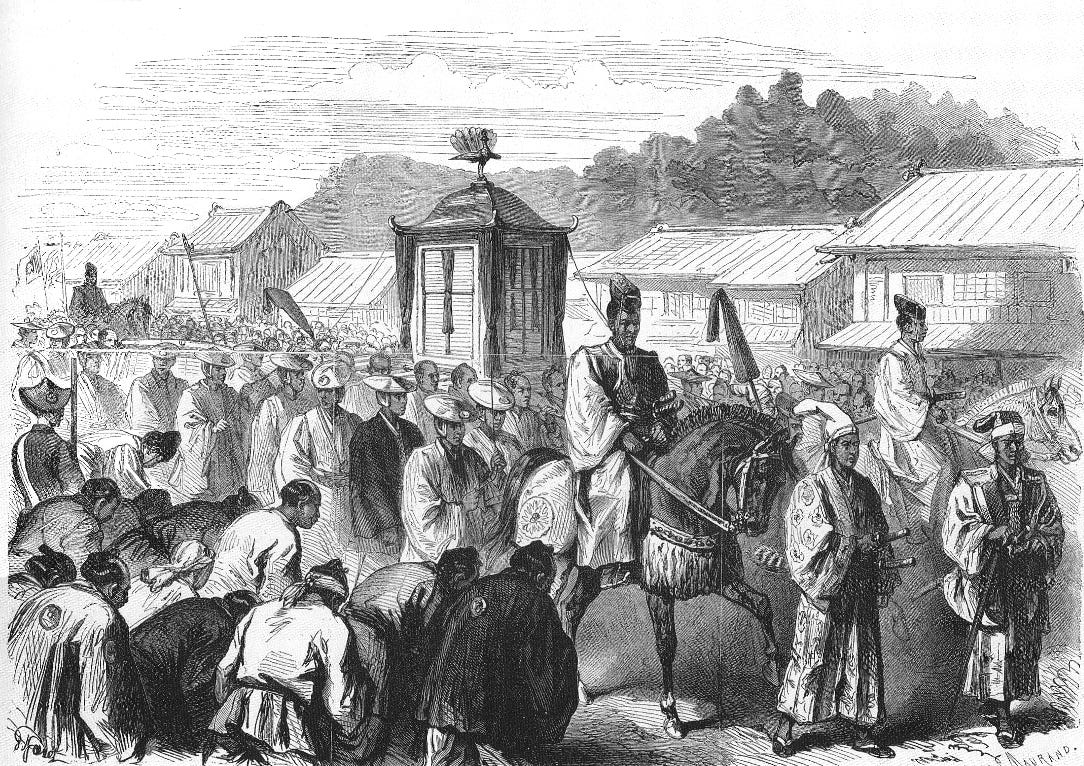Today in History: January 1-3
Let me take this opportunity to thank everyone who read and supported Foreign Exchanges in 2019 and to wish you all a very happy and prosperous 2020! Pressing current events aside, FX is still on break but will be back to normal posting on Tuesday!
January 1, 1001: As was the case with Christmas, January 1 tended to be a popular day for crowning medieval monarchs. There are way too many of those to list here, and anyway most of them turned out to be fairly unimportant. One that was relatively significant was the crowning of Stephen I, the very first king of Hungary. Stephen had been ruling Hungary since 997, but prior to 1001 the ruler of Hungary went by the title “Grand Prince of the Hungarians,” reflecting the fact that they were elected by and subject to the Hungarian nobility. Stephen sought the title of king both to demonstrate his authority over the nobles and to put him on par with other national leaders in Europe. He was probably crowned by Pope Sylvester II on January 1, 1001, although thanks to some ambiguous chronicling there’s an outside chance it actually happened on Christmas Day 1000.
January 1, 1801: The Acts of Union, parallel bills passed in the British and Irish parliaments the previous summer, come into effect, creating the United Kingdom of Great Britain and Ireland. The Irish and English crowns had been in personal union since 1542, when the Crown of Ireland Act elevated the Lordship of Ireland into a full Kingship, and that personal union continued when the English crown became the British crown after the 1707 Act of Union merged England and Scotland. So the 1800 Acts of Union merged two kingdoms that were already ruled by the same person. The 1919-1921 Irish War of Independence ended the union for most of Ireland and is the reason why it’s now the United Kingdom of Great Britain and Northern Ireland.
January 1, 1804: The Haitian Revolution ends when new President Jean-Jacques Dessalines declares Haiti’s independence from France. As with royal coronations, January 1 has also been a popular date for national independence days. In addition to Haiti, this is also Independence Day for Brunei (1984, from the UK), Cameroon (1960, from France and the UK), and Sudan (1956, from Egypt and the UK).
January 2, 1492: The “Reconquista” ends with the formal surrender of the Emirate of Granada to Ferdinand II of Aragon and Isabella I of Castile.
January 2, 1963: Despite being outnumbered roughly five to one, a unit of around 350 Việt Cộng fighters defeats a joint South Vietnamese-US force at the Battle of Ấp Bắc in South Vietnam’s Định Tường province, withdrawing only when it began to run out of ammunition. The battle was the first VC victory in a pitched battle against the South Vietnamese military and as such was both a substantial morale boost to their war effort and a major embarrassment for the South Vietnamese government.
January 3, 1521: Pope Leo X issues a bull, titled Decet Romanum Pontificem, in which he excommunicates Martin Luther. Leo had threatened to excommunicate Luther in a bull issued the previous year that Luther made a show of burning in defiance. With the benefit of hindsight I think we can say that this whole incident didn’t go the way Leo expected that it would.
January 3, 1868: Japanese Emperor Meiji issues an edict declaring an end to the powerful Tokugawa Shogunate and a restoration of the authority of the emperor—marking the “Meiji Restoration.” Although the last Tokugawa Shōgun, Tokugawa Yoshinobu, had resigned in November 1867 it was this edict that really marked the political end of the shogunate and the establishment of a centralized imperial government. Tokugawa Yoshinobu would subsequently lead an unsuccessful rebellion against the Meiji Restoration that began in late January.

Emperor Meiji processing from the imperial capital of Kyoto to the shogunate capital of Edo, which he renamed Tokyo, in late 1868, as drawn for the French newspaper Le Monde illustré (Wikimedia Commons)
January 3, 1919: In the lead up to the Paris Peace Conference, Arab Revolt leader Faysal b. Hussein and Zionist activist Chaim Weizmann conclude an agreement under which Faysal agrees to support a Jewish homeland in Ottoman (soon to be British) Palestine while Weizmann agrees to support the creation and development of an Arab state under Faysal’s father, King Hussein of the Hejaz.

